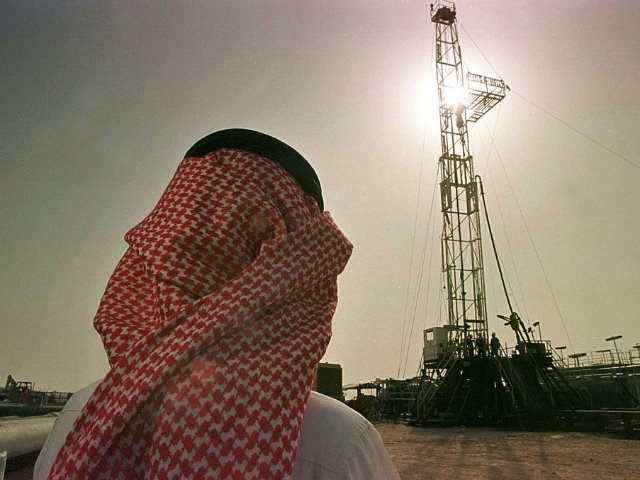Ambassador Charles (Chas) W. Freeman, the former career US Ambassador to Saudi Arabia, (US Foreign Service Retired), has outlined the Saudi Arabia position on the Oil Price Collapse. Ambassador Freeman served as President George H.W. Bush’s representative to Saudi Arabia from 1989 to 1992.
Saudis have been blamed for high crude oil prices, now they are being blamed for low oil prices since they have not cut production substantially. He notes last year the crude oil price was $115 bb. Today it is in the $40 to $50 bb range, a substantial collapse. Why have the Saudis allow this to happen?
World oil demand is about 92 million bbs day, with OPEC including Saudi Arabia supplying about 40% of the demand. Saudi can increase supply a couple million bbs. Today production of global oil is over 94 million bbs. Since 2008 oil production has risen from 80 million bbs day to 94 million. Increased production as a result of high oil prices resulted in increased oil production in US, Iran, Iraq, Libya, Russia, etc. With inventories of unsold oil growing and the strong dollar, the price had to fall. When oil prices increase, production increases. When oil prices fall, production falls.
For the past five years oil prices and expectations about future prices have both been high. Interest rates have been very, very low. This situation encouraged many investment projects, especially in oil, like fracing and oil sand development, some of which have been highly profitable with high oil prices. Over the past four years US oil production rose by two thirds, displacing imports and making an additional 5 to 6 million bbs day available to world markets. For Saudi Arabia it is clearly smarter to eliminate current and future competition and assure future market share. There are several reasons for their position;
First, low prices do not hurt the Saudi national oil company, Saudi Aramco. Their production costs are $5 to $6 bb. Some US fracing production costs can be $40 bb and higher if requiring additional fracing.
Second, Low oil prices both halt high-cost producers and inhibit any switching to alternative energy sources other than oil. They affect fracing, deep-water production, Arctic exploration, natural gas, and renewable energy sources.
Third, the Saudi foreign exchange reserves are over $900 billion and are one-fifth of its GNP and four times the annual budget.
Fourth, the nations most negatively affected by low oil prices are Saudi’s enemies and competition, especially Iran and Russia.
Fifth, cheap oil helps build markets in rising nations like China and India, where future demand is concentrated. Asia already buys two-thirds of Saudi oil and the US one-fifth. The Saudis are cultivating relations with Asian nations to dilute dependence on the United States.
Six, both the prospect of several years of low oil prices and the timely reminder of market volatility that the price collapse has provided help discourage Chinese and Indian plans to develop fracing and impede progress towards self-sufficiency in Saudi’s most promising markets.
Seven, the effect of the price collapse has been that rumors of Saudi and OPEC irrelevance have been greatly exaggerated. Saudi Arabia’s prestige has been enhanced.

COMMENTS
Please let us know if you're having issues with commenting.